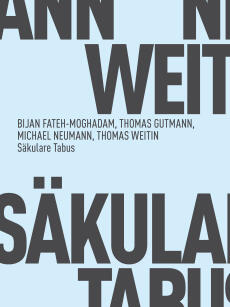Secular Taboos

„Secular Taboos“ deals with the role of taboos in secular western legal systems and asks for the possibility of a secular justification of intangible legal norms. “The dignity of man shall be inviolable”, proclaims Article 1 of the German Basic Law as well as other international declarations of human rights. So it might seem that even modern secular legal systems are, surprisingly, based on a taboo, here: the taboo of touching the sphere of human dignity. However, a closer look reveals that the concept of taboo, as an archaic and religious rhetorical figure, is not suitable for the justification of general norms in secular societies. Nevertheless with regard to the task of identifying a common ground of values in the times of terrorism and increased religious plurality, religious patterns of reasoning still enjoy great popularity. But the romanticization of basic legal concepts as the dignity of man produces fatal consequences: By way of sacralizing human dignity, the constitutionally protected core of personal autonomy is turned into an empty formula. Moreover, the sacralized concept of human dignity turns out to be a means of exclusion, which is open to politically motivated exploitation, as long as it is detracted from the requirement of public justification. The essay, therefore, argues for the necessity and the possibility of justifying human dignity as an inviolable right on the basis of secular concepts of legal reasoning.

